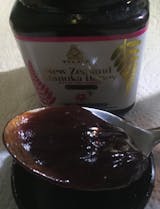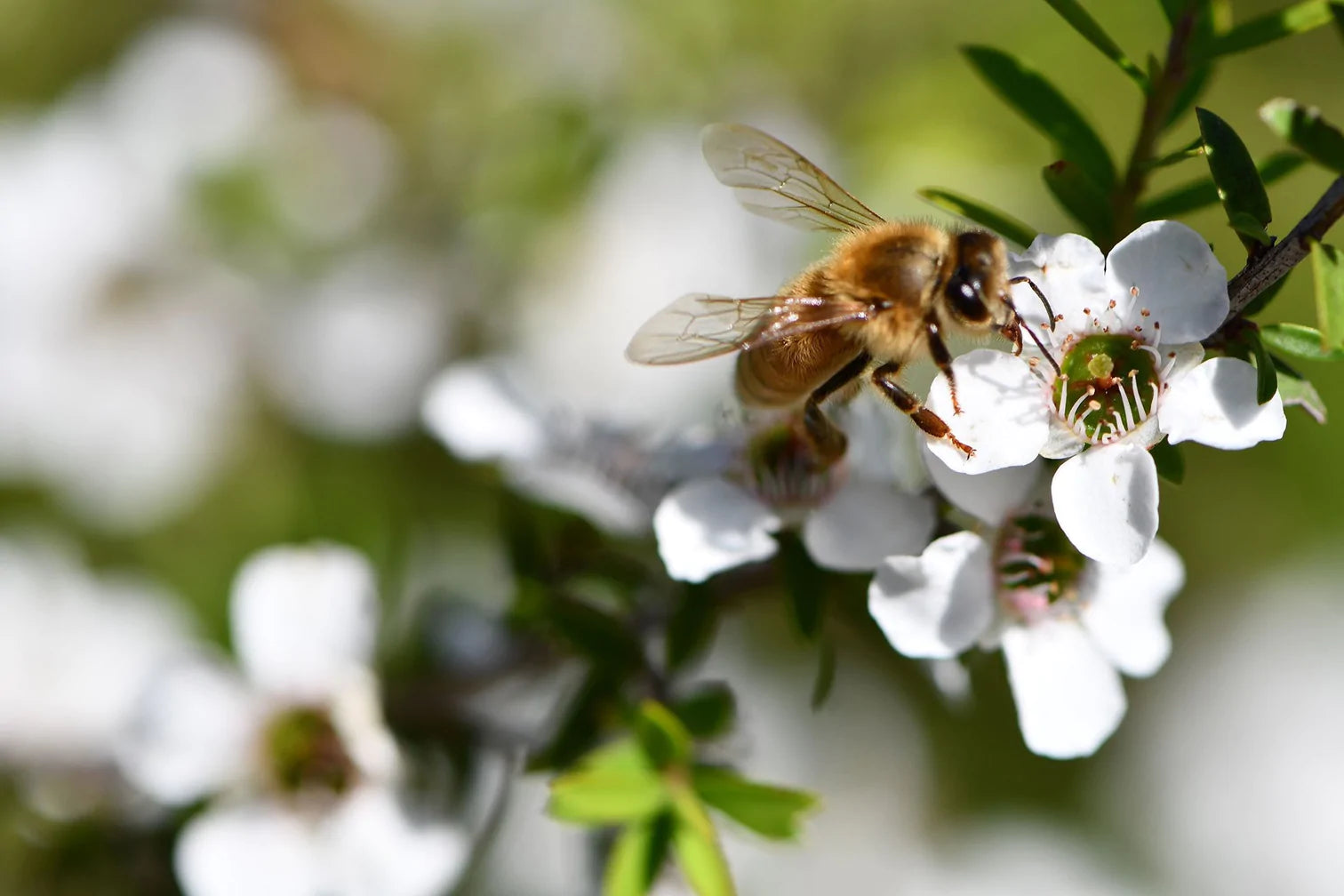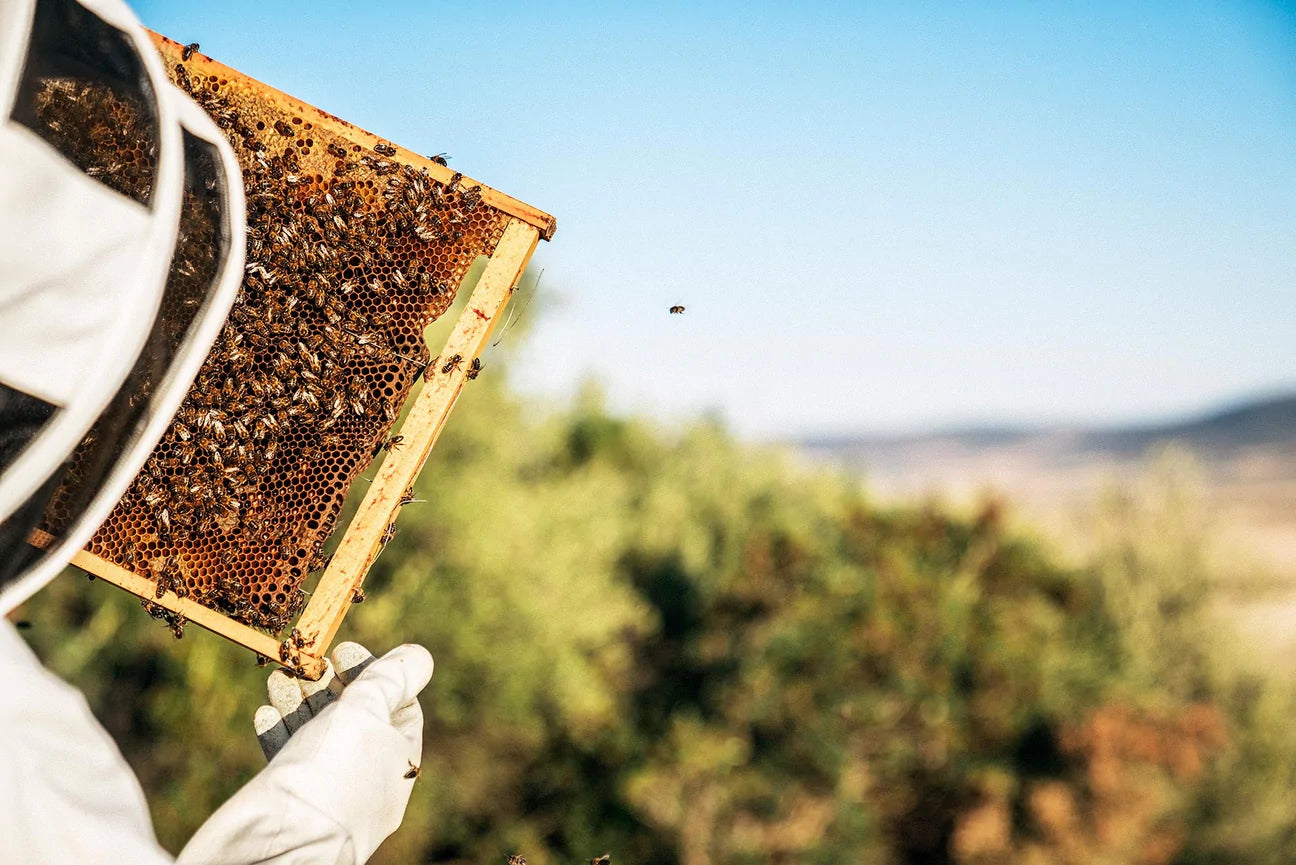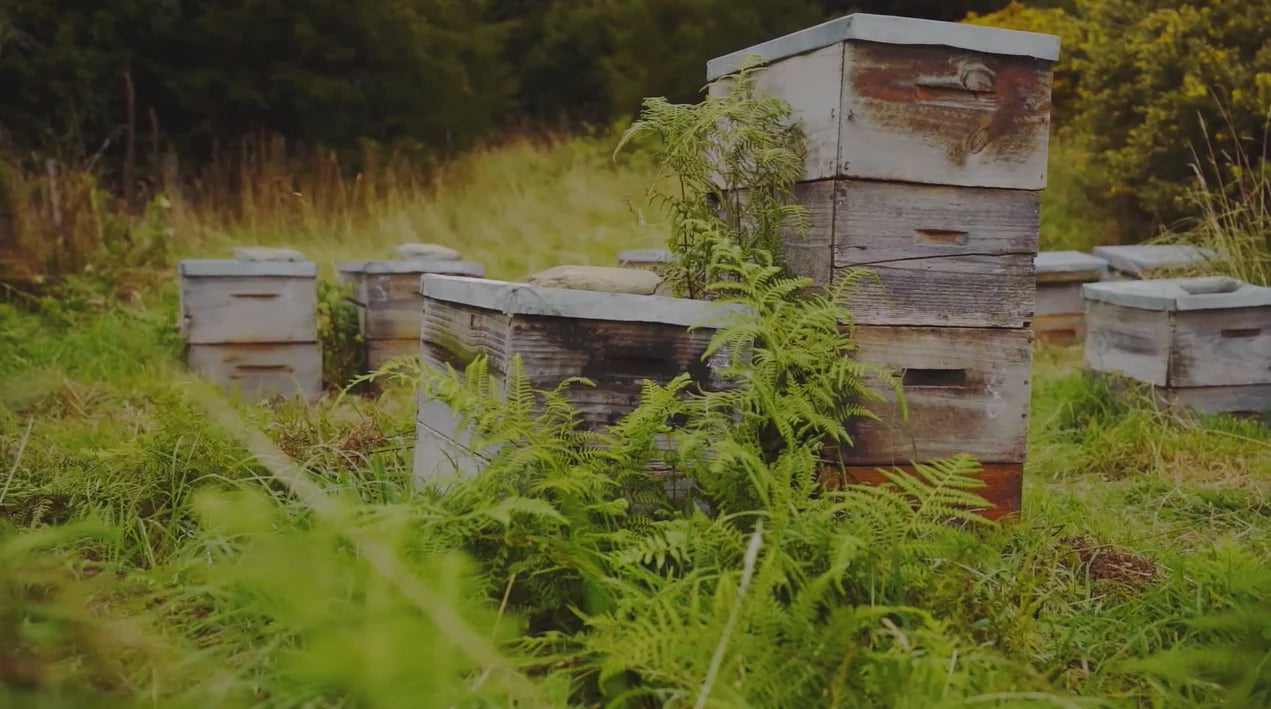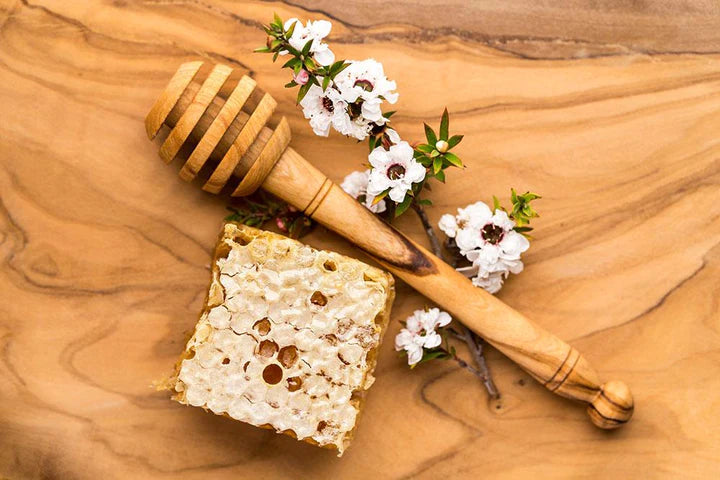
Pure and Certified Raw Manuka Honey New Zealand
Taken right from nature, pure wild organic raw Manuka Honey New Zealand blended with other carefully chosen antioxidant superfoods for natural healing.
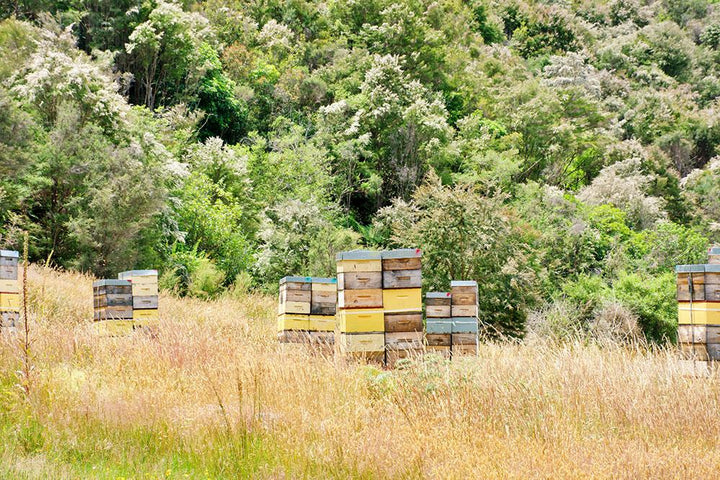
Certified, tested, and packed in New Zealand
All TURNER Manuka Honey is independently tested and certified by laboratories in New Zealand abiding by Ministry of Primary Industries (MPI) standards and is packed in New Zealand.
TURNER Manuka Honey UAF1000+®
TURNER Manuka Honey UAF1000+® is a rare, high-potency monofloral Manuka honey sourced from the untouched landscapes of New Zealand. Naturally rich in MGO and enhanced with Noel Turner’s UAF1000+® super-antioxidant plant blend, it delivers powerful immune, digestive, and wellness support in every spoonful. Pure, creamy, and supercharged by nature—this is the ultimate premium Manuka honey.
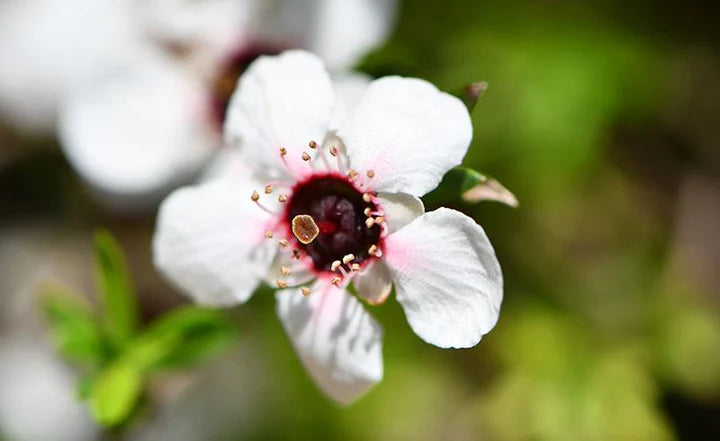
100% Certified New Zealand Manuka Honey
Our authentic New Zealand manuka honey is tested and certified by a third-party independent laboratory to meet New Zealand MPI Manuka Honey regulations and is tested and packed in New Zealand to guarantee its integrity and authenticity.
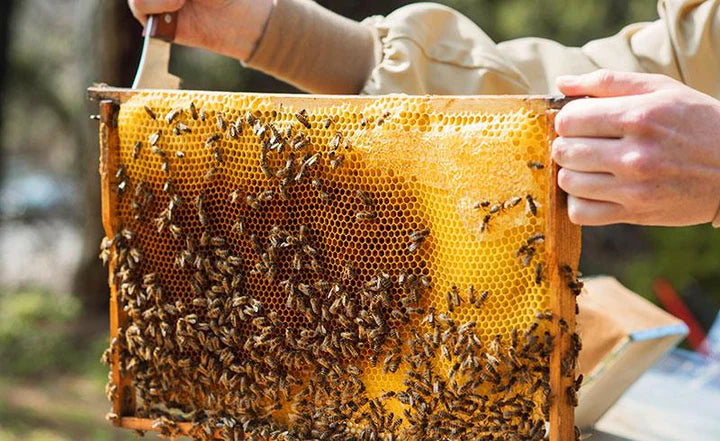
Over 100 Years Collecting Manuka Honey
Our bee keeper has been collecting manuka honey for over 100 years. Use 1 teaspoon in smoothies, hot tea, coffee, and use as a natural sweetener for meals. Re-balances the microbiome, improves digestion, and soothes sore throats.
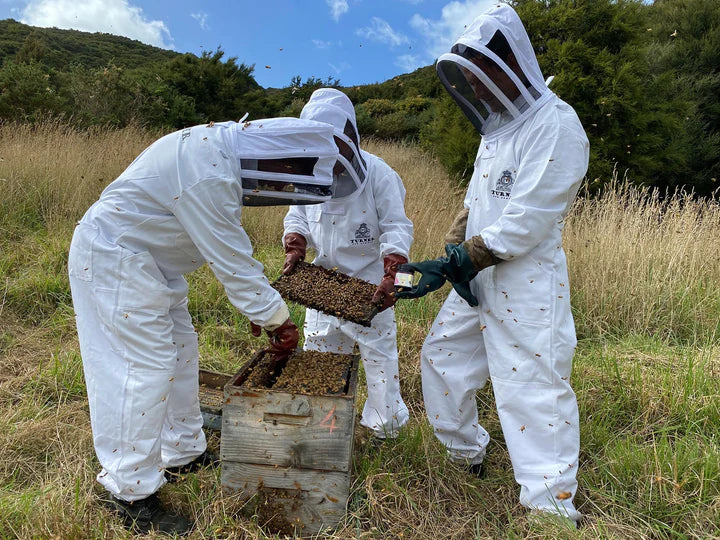
1000x More Anti-Inflammatory's
Scientific studies have shown Noel Turner’s UAF1000+® to be 1000 percent more effective at both preventative and therapeutic anti-inflammatory activity compared to other New Zealand Manuka Honey. We blend these powerful antioxidant superfoods with certified manuka honey to create the strongest anti-inflammatory superfood supplement.
FAQ
TURNER Manuka Honey UAF1000+®
What is Manuka?
The Manuka bush grows mainly in the remote mountainous regions of New Zealand. The manuka plant belongs to the myrtle family and is rich in essential oils. The leaves and bark of this tea tree species have been used for centuries by the Maori, the indigenous people of New Zealand, as a remedy to soothe wounds and gastrointestinal diseases. The fact that valuable honey could also be produced from the flowers was discovered long afterwards, namely when honey bees were settled in New Zealand in 1840. Until then, only wild bees were native to New Zealand. The flower nectar of the Manuka bush is remarkable and now the rest of the world has also recognized the amazing effect of Manuka honey against bacteria, viruses and fungi. TURNER multifloral manuka honey also contains New Zealand wildflower honey.
How is Manuka honey extracted?
Manuka honey is extracted by placing hives close to manuka bushes, which are in full bloom, in the pristine wilderness of New Zealand. Some of these regions can only be reached by helicopter, so the hives must be flown into these pristine areas. The bees then fly to the flowers in the surrounding area. This is done in order to obtain the purest possible "monofloral" Manuka honey, as bees generally harvest all the flowers available to them within a certain radius.
What is the difference between Manuka Honey and other local honeys?
Manuka honey is a very valuable honey because it contains many times higher levels of methylglyoxal than domestic flower honey. Methylglyoxal has the property to act antibacterial and against multi-resistant germs. In European native honeys, about five milligrams of methylglyoxal per kilogram are found, but in the honey of the Manuka tea tree, up to 800 milligrams.
What makes Manuka honey so expensive?
There are several reasons for this and it is not only due to the extraordinary composition of Manuka honey. As described above, the Manuka bush grows exclusively in New Zealand and a few parts of Australia. This, therefore, needs a certain soil and also the right climatic conditions to bloom then only 2–6 weeks a year. This means that the bees can only harvest the Manuka nectar within these 2–6 weeks.
In order to produce real Manuka honey, it is important that the bees fly as exclusively as possible to the Manuka bushes, which in turn requires that the hives be placed in remote regions with the highest possible population of Manuka bushes, often even with helicopters.
In summary, the following factors account for the price of this rarity:
higher levels of methylglyoxal than domestic honey
the conditions of harvesting the Manuka honey are more difficult
the production volume remains the same with increasing demand
transport costs incurred
What are the properties of TURNER Manuka honey UAF1000+®?
Generally, Manuka Honey is creamy in consistency, but TURNER Manuka Honey is creamy to firm due to the addition of the plant extracts. Manuka honey also tends to be darker in color. TURNER Manuka Honey has a rosewood tone due to the addition of the plant extracts UAF1000+®. In addition, the Manuka bush may have white, pink, or red Manuka flowers with pollen of varying lightness.
Since TURNER Manuka Honey UAF1000+® is a pure natural product, the shade may well vary a little with each new batch, but this does not affect the quality of the honey.
What is the taste of TURNER Manuka Honey UAF1000+®?
Manuka honey generally has a slightly stronger flavor than regular honey. The combination of TURNER Manuka Honey with UAF1000+® plant extracts gives it a sweet, floral, but also slightly tart flavor.
What is the difference between monofloral and multifloral Manuka honey?
Manuka honey can only be called "Manuka honey" if it is "monofloral", meaning the majority of the honey comes from the Manuka flower. Honey labeled "multifloral Manuka honey" comes primarily from other flowers, but contains a proportionate amount of Manuka honey. For our TURNER Manuka Honey UAF1000+®, we use monofloral manuka honey enhanced with Noel Turner’s UAF1000+® plant extract blend.
How can you recognize real New Zealand Manuka Honey?
Many customers ask about the quality of our UAF1000+® Manuka Honey because very often they can't see through the claims jungle of factors and numbers about Manuka Honey. At TURNER, we've been thinking about how we can clear up the confusion around the different factors when buying Manuka Honey, so we got the answer straight from New Zealand from our beekeeper Murray, who produces our Manuka Honey locally.
Does real Manuka honey have to be certified?
Yes, in order to be called Manuka Honey, it must be certified by the New Zealand Ministry. We only offer certified New Zealand Manuka Honey that is also harvested, tested, bottled and packaged in New Zealand, which guarantees that it is real, New Zealand Manuka Honey. Like all other packaged New Zealand Manuka Honeys, our TURNER Manuka Honey has been tested and certified by independent laboratories to MPI NZ Manuka Standards.
MPI is New Zealand's Ministry of Primary Industries, responsible for domestic food regulation and import/export. Certification of a Manuka Honey by MPI NZ Standards certifies that it has passed as genuine Manuka Honey and has been previously tested based on natural compounds and DNA specific to Manuka Honey.
What does UAF1000+® mean?
TURNER has now taken its New Zealand sourced, packaged, and certified Manuka Honey to a whole new level. TURNER combines Manuka honey with Noel Turner’s unique UAF1000+® (Ultimate Antioxidant Factor 1000+) formulation of plant extracts. This powerful antioxidant "superfood blend" consists of a plant extract mix of blackcurrant, kiwi, boysenberry, grape seed, red grape skin, and pine bark, with which we fortify our monofloral Manuka Honey.
The result is a manuka honey pot packed with antioxidants and vitamins. Our TURNER Manuka Honey is a valuable nutritional supplement due to the UAF1000+® plant extract enhancement. We recommend that you keep a pot of TURNER Manuka Honey UAF1000+® handy for your daily spoonful of this truly remarkable superfood, which can provide immune-boosting support as a dietary supplement, especially during the winter season!
Is manuka honey a healthy alternative to table sugar?
We compare regular table sugar to Manuka honey to determine if honey is a healthy alternative to industrial sugar. Normal household sugar is a dual sugar. This is composed of two simple sugars, namely glucose (dextrose) and fructose (fruit sugar). Manuka honey also consists of glucose and fructose, but also minerals, vitamins, water, methylglyoxal (MGO), amino acids, polyphenols, flavonoids, phenolic acids, lipids, and enzymes.
In terms of calories, the two sweeteners differ only slightly, but at the same time the proportion of fructose in honey is somewhat higher than in table sugar and therefore honey tastes somewhat sweeter. As a result, less honey is needed to sweeten food and calories can be saved. Unlike table sugar, Manuka honey is a natural, raw, unprocessed sweetener and also has antibacterial properties. That's why you should choose Manuka honey over table sugar for sweetening.
You can even add Manuka Honey to hot drinks because the ingredient Methylglyoxal contained in Manuka Honey is largely heat resistant.
Can children consume Manuka Honey?
Yes, infants may consume Manuka Honey without hesitation, provided they have reached the age of 1. Babies under one year of age are at risk of botulism, so consumption must be avoided. As we enhance TURNER Manuka Honey with plant extracts and it is therefore classified as a food supplement, please read the consumption recommendation on the label.
What is the best way to store Manuka Honey and what is its shelf life?
Honey in general has a virtually indefinite shelf life when stored properly, even if a best before date is listed. If you store Manuka Honey away from light, in a cool, dry place, it will not crystallize and will retain its original consistency. Valuable ingredients are also protected when stored properly and will be preserved for a long time. The dark color of the container for our Manuka Honey, guarantees a certain light protection, which is very important for storage.
Honey and also salt are two foods that do not automatically become inedible after expiration and can still be eaten well after that.
Why do we use plastic containers for TURNER Manuka Honey?
Genuine Manuka Honey is certified and bottled in New Zealand according to strict guidelines and controls. These strict guidelines also apply to the packaging, which must be classified as food safe and harmless according to international food standards in order to be able to use it. So we only pack in containers that are approved for food. Manuka honey from New Zealand is shipped all over the world.
Glass containers are more expensive to produce and would add to the already extremely high transportation costs because of their weight. Because we try to offer our customers a price advantage, and also because glass containers are not suitable for long transport routes due to their susceptibility to breakage, we use dark plastic containers for our UAF1000+® Manuka Honey. The dark color of the container for our Manuka Honey, guarantees a certain light protection, which is very important for storage.
We ask our customers to recycle these plastic containers after consuming the Manuka Honey.















